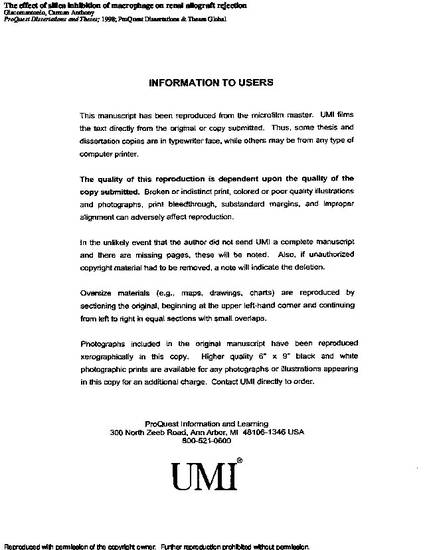
Thesis
The effect of silica inhibition of macrophage on renal allograft rejection
(1997)
Abstract
Kidney failure, one of the most serious complications of diabetes is routinely managed by kidney allograft transplantation. Research into the etiology of diabetes has revealed that macrophages are primarily responsible for the β-islet cell destruction in diabetes and that depletion of macrophages using intraperitoneal (i.p.) silica, which is selectively toxic to macrophages, prevents this. Macrophages accounts for approximately 50% of the graft infiltrating cells (GIC) observed in an acutely rejecting kidney, a process phenotypically very similar to a delayed type hypersensitivity (DTH) reaction. Macrophages are known to be essential for DTH reactions. Their exact role has never been elucidated in acute rejection. Silica has been shown to prolong islet allograft survival. Using a rat model, we wondered if depletion of macrophages using i.p. silica prior to renal allograft transplantation would delay or prevent acute rejection. To evaluated acute kidney rejection in our model we transplanted Brown Norway (BN) kidneys into nephrectomized Lewis (Lew) recipients. Using groups of four animals, kidneys were harvested at days 0, 2, 3, 4 and 5. Tissue was evaluated histologically, morphometrically and cytoflurometrically
Keywords
- transplantation,
- rejection,
- macrophages
Disciplines
Publication Date
1997
Citation Information
Carman A Giacomantonio. "The effect of silica inhibition of macrophage on renal allograft rejection" (1997) Available at: http://works.bepress.com/vivianmcalister/244/
Creative Commons license

This work is licensed under a Creative Commons CC_BY-SA International License.
